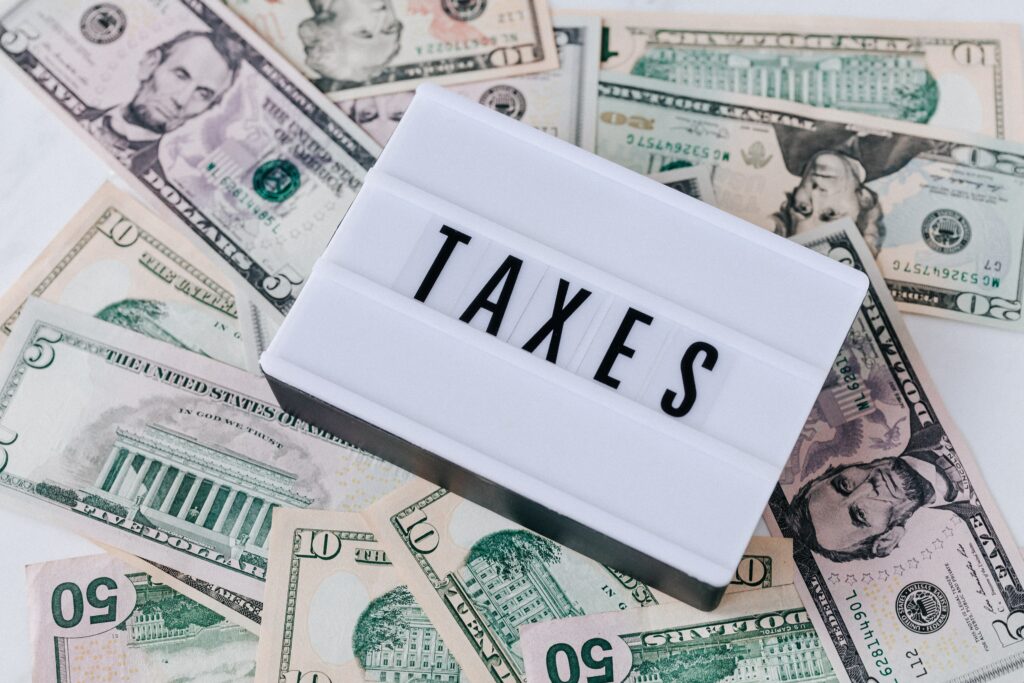Filling out tax returns is becoming quite a challenging task considering the maze of state and federal tax forms. No wonder many taxpayers seek the assistance of either a financial planner or a professional accountant to file their forms.
However, although most enrolled agents (as certified by the IRS), tax lawyers, and chartered accountants, are highly qualified professionals for tax preparation tasks and tax returns, mistakes often occur, intentionally or not.
In some instances, the tax preparator is either poorly qualified for the job or, even worse, tries to generate a higher fee by manipulating a taxpayer’s return intentionally. The same could apply when using tax preparation software for tax filing purposes improperly.
Below are the steps to take to resolve your issue, if you have found yourself faced with errors with tax returns, along with information on filing complaints to the IRS to deal with foul tax-filing service.
What to Do if the IRS Notifies You That Your Tax Return Has an Error
Your first course of action should be to investigate who made that error. Was it you or the tax preparer/tax preparation software? Note, though, that tax software appears to be a slightly better option for tax returns, in some cases.
Investopedia claims that using tax software is a recommended option for taxpayers with simpler tax situations. Indeed, according to a recent TurboTax survey posted on PissedConsumer.com, a consumer reviews website, the majority of taxpayers using the said software package for the preparation of income tax returns have a positive experience overall. However, mistakes can happen at any given time.
Remember that even if it was not you who made the mistake, you still own it on your tax return. So, it is solely your responsibility to fix it and also pay any incurring fees the IRA will probably charge you.
In most cases, the errors occur because the taxpayer has forgotten to provide their 1099-INT, which reports any interest they have on a bank account. Regardless of the situation, it is critical that you contact the IRS and follow their directions to resolve the issue. This usually entails filing a form to correct the mistake and paying a penalty.
If the mistake was made by a tax software you have used, contacting the company’s customer service is the fastest way to go about this. Nevertheless, it is highly recommended to research the tax software or tax preparer you are about to trust with your tax returns. For example, going through online reviews about them could save you from lots of hardship and stress related to errors in your tax returns.
What Is Considered Misconduct in Tax Filing?
You will need to report your tax preparer for misconduct if they have impacted your refund and/or tax return by doing any of the following:
- Misdirecting your refund.
- Generating a larger refund by creating false credits, deductions, or expenses.
- Generating a larger refund by omitting or creating income.
- Generating a larger refund by creating false dependents or exemptions.
- Changing your tax return documents.
- Generating a larger refund by using an incorrect filing status.
- Filing an individual Form 1040 series without you being aware of it or without your approval.
If your refund or return has not been affected, a tax preparator can be reported for improper tax preparation practices if they have:
- Held your records until the preparation fee is paid.
- Neglected to return your records.
- Used another individual’s PTIN (Preparer Tax Identification Number).
- Failed to enter a PTIN on a tax return.
- Refused to provide you with a copy of your tax return.
- Used tax software intended for use by individuals, such as IRS Free File, to prepare your returns.
- Claimed (falsely) to be an enrolled actuary, enrolled retirement plan agent, enrolled agent, certified public accountant, or attorney.
How you report a tax preparer for misconduct depends on whether the IRS has already sent you a notice.
What to Do if Your Tax Preparer Has Messed Up
First of all, you can ask your tax preparer to correct the honest mistake they have made by filing an amended return or taking other corrective steps. Regarding the reduction of any resulting penalties or the forgiveness of the error, the service provider may offer to contact the IRS and negotiate with them on your behalf (if they qualify for this kind of action). Alternatively, you might be offered direct compensation when penalties or fees are being imposed as a result of their mistake.
But, what if a tax preparer makes a mistake intentionally? In this case, you must take a different route that involves filing the following forms:
- Form 14157 – This form deals with tax preparer-related wrongdoings.
- Form 14157-A – You will need to complete this form if the error has affected your refund or tax return.
- Form 3949-A – Use this to report alleged tax law misconduct or violations by either a business or an individual.
Do not use Form 14157 if your identity was stolen or have suspicions that your ID has been stolen. Use Form 14039 instead – go to page 2 and follow the given instructions.
What to Expect After You Report the Tax Preparer
You will have to download the forms mentioned above s from the IRS website and then mail them either to the address you sent your Form 1040 (if you didn’t get a notice) or to the following contact options:
Fax: 855-889-7957
Mail:
Internal Revenue Service
Attn: Return Preparer Office
401 W. Peachtree Street NW
Mail Stop 421-D
Atlanta, GA 30308
As soon as the IRS receives your claim for intentional wrongdoing on behalf of your tax preparator, you might be asked to provide any supporting documentation, or they will conduct an investigation. This could lead to the revocation of the preparer’s tax ID number or even penalties from the state’s regulatory body. As a last resort, the case can be taken to court. However, this means valuable time and money loss as it involves incurring legal fees.
What Are the Penalties for Wrong Tax Filing
Although there are no specific penalties for incorrect tax filing, you could lose credits and deductions you qualify for and even get to return a refund you were not eligible for in the first place. Some of the penalties that can be imposed on a taxpayer that has provided inaccurate information on their tax return:
- Late payment penalty – This refers to a 0.5% payment penalty (up to 25%) of the overdue sum for each month your payment is late.
- Negligence penalty – This can be imposed when you have understated your tax liability significantly (over 10% of the total due amount or $5,000), disregarded tax rules impetuously, or made a serious mistake on your tax return out of carelessness.
- Civil tax fraud penalty – It applies to taxpayers that intentionally deceive the IRS with either an attempt to hide critical information (i.e., income from abroad) or provide a false statement. You will be called to pay 75% of the underpayment sum, plus other monetary penalties.
Besides penalties, though, you might also be charged with tax evasion if you are found to have made a deliberate attempt at deception (e.g. you overstate your deductions deliberately). This means facing a fine of around $250,000 and a penalty of 5 years in prison (maximum). It all depends on how the IRS judges the intent of the taxpayer.
Accidental mistakes are not considered fraud. However, the taxpayer’s intent must be proven to the IRS. For this reason, many taxpayers prefer to use software or professional tax preparer instead of doing their own taxes. You may even contact the Taxpayer Advocate Services, who will make sure you don’t make any mistakes during tax prep.








